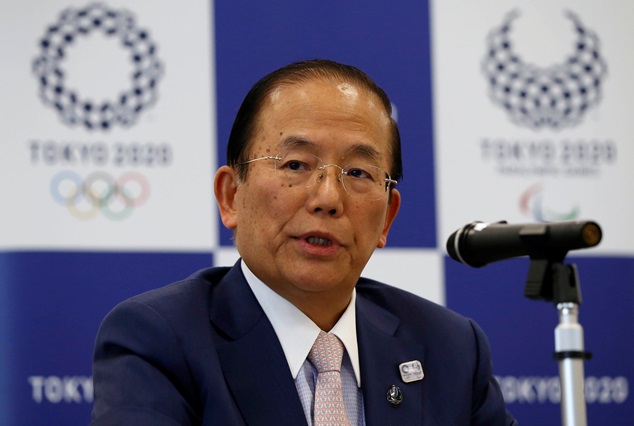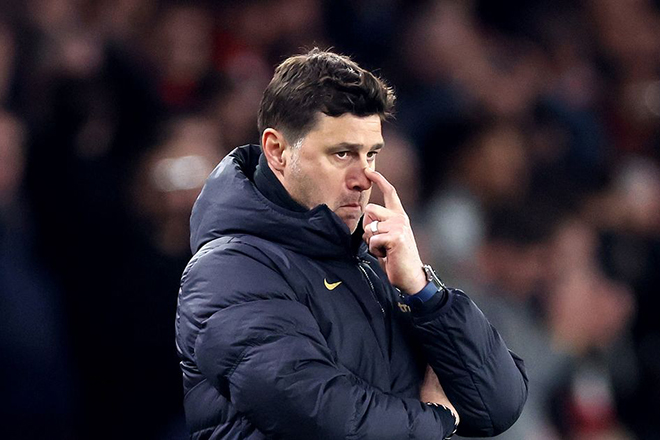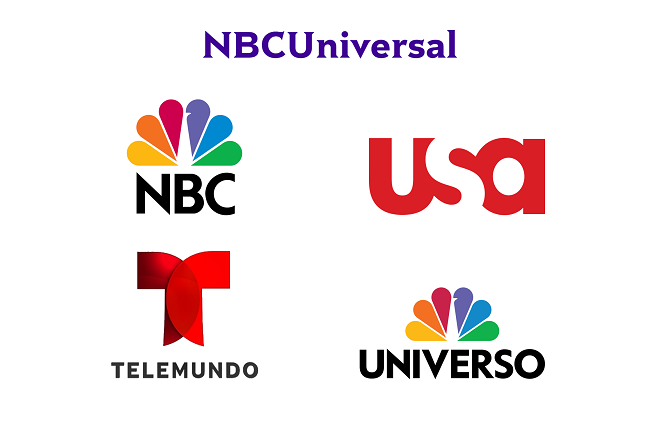Exactly 121 days from today, the Olympic Torch will be in position at the New National Stadium in Tokyo, Japan for the 2020 Olympic Games to commence in its glory and grandeur. But that will only be a realization in a world where there is no wave of panic and the lives of people have not been put on hold while nations join hands to combat a pandemic. As things stand, our beloved planet does not tick the boxes to be classified as such, and the novel coronavirus takes full credit for the state of affairs. The outbreak of COVID-19 has presented a different path for history to follow, navigating its course through society and wreaking havoc across continents. The virus does not discriminate and, unfortunately, its broad implications have now threatened sports - an aspect of life that remains a safe haven for many when sanity appears to be nonexistent.
Over the course of the past two months, there has been spontaneity in the suspension of sporting activities in many parts of the world as part of stringent measures that will aid the fight against the spread of the virus. The precaution instated has resulted in many organizations, franchises, clubs, media outlets and major stakeholders, taking financial hits and the worst is feared to happen should the problem persist.
For instance, in England, a number of clubs in the lower leagues have already started laying off all non-playing staff in their quest to survive without any in-flow of revenue. According to the UK Express, football in the country is set for a staggering 10 billion pounds' loss should the season be nullified as a result of the coronavirus pandemic. A study by KPMG has also suggested that Europe's top-five leagues could collectively lose as much as 4 billion pounds from broadcasters should the virus wipe out the rest of the season.
Jamie Redknapp calls Premier League to help lower division teams recover from the #coronavirus once the situation improves.
— SBOBET (@SBOBET) March 18, 2020
"Many smaller clubs could go out of business from this. It wouldn't harm the #PL clubs, given all the money the league creates, to agree to do something."
To the hosts of the 2020 Summer Olympics, Japan, the harsh treatment being handed out by the COVID-19 outbreak seemingly has subliminal implications to the ambition to welcome the rest of the world to its shores this summer. As at 12:30 GMT on Monday, March 23, the Asian country had recorded a total of 1,101 cases as per the real-time information provided by WHO. There were a total of 41 deaths, 49 in critical conditions, 825 active cases and 235 recoveries.
In contrast, Italy - the country with the most active coronavirus cases following China's 'full recovery' - had a death toll of 5,476 with the total number of confirmed cases standing at 59,138. Although Japan issued a 14-day hiatus of public activities across the country, the Olympics CEO Toshiro Muto affirmed last Wednesday that Tokyo 2020 - scheduled to take place from 24 July to 9 August 2020 - will be held as planned. According to him, protocols were being put in place to guarantee the "safety and interest of athletes, coaches and support teams.

Toshiro Muto, Tokyo 2020 Organizing Committee CEO
Owning to Muto's proclamations, a divide has now emerged in the Local Organizing Committee with member Kaori Yamaguchi raising an opposing voice to highlight the complications which could arise if the games are not postponed. She asserted that the "Olympics should not be held in a situation people in the world can't enjoy". International Olympic Committee member Hayley Wickenheiser also slammed the plans for the Tokyo Games to go ahead and branded the LOC's stance as "insensitive and irresponsible" while emphasizing on the magnitude of the crisis.
Evidently, Japan could make a massive statement by moving the international sporting event to a later date just as done to some sporting activities in other countries across the world. However, current indications suggest that it will take unprecedented turn of events in the ongoing COVID-19 pandemic for any cancellation to be considered. From a financial standpoint, the latter is almost nonexistent.
Following an executive board meeting on Sunday, the IOC is set to announce a decision "within the next 4 weeks". Pressure mounting from athletes and national Olympic committees, the body is set to consider three possibilities:
-
Moving the games to autumn 2020
-
Moving to Summer 2021 as the Euros and Copa America have been pushed
-
Moving to 2022, a World Cup year.
However, in these three likely scenarios also lie a number of challenging factors for both Men's as well as Women's Olympic Football. Regarding the former, if the Games are held in autumn, the tournament could see a number of stars being amiss. In Europe, provision has been made for the suspended leagues to resume in autumn if the crisis is managed properly with Euro 2020 being rescheduled to 2021. This will mean that most of the star figures will be obliged to help their respective clubs in finishing the season while the Olympics are also ongoing, thereby making their involvement impossible. For instance, Paris Saint-Germain has already denied Mbappe access to represent France. A number of clubs are expected to do same to their most-priced assets.
Now, if the Olympics are held in 2021, the Euros could also miss some U23 stars. Note that the Men's Olympic Football is for U23s with the possibility to add a limited number of veterans to the squad, whereas Women's is for senior teams. Nevertheless, there could be a blessing in disguise if it's held in 2022 as some U23 stars could get the opportunity to justify their inclusion for the 2022 World Cup to be in Qatar during the winter season.
For Women's Olympic Football, it could be a disruption for the clubs should the Games be held in autumn. Using the USWNT as a case study, most of their stars play in the NWSL and this presents the possibility of them being absent at a crucial moment in the season. If it's in Summer 2021, the hype could add to the Women's Euro 2021 on the grounds that the latter is played as scheduled. With no new dates communicated, the tournament is expected to take place from 7 July to 1 August 2021.
Lastly, if it is in Summer 2022, some aging stars may not be able to make it into their respective teams (for example, the USWNT's Carli Lloyd would be almost 40!). However, the tournament would open a window for coaches to pick their 2023 FIFA Women's World Cup squads.
2020 Summer Olympics budget
As at the end of 2019, the world's third-biggest economy had invested an estimated amount of $12.6 billion into the 2020 Tokyo Games. The price tag was divided among Tokyo, the Japanese organizing committee and the central government. However, the figure does not include the contributions amassed from business sponsorships as well as partnerships between major companies and the International Olympic Committee (IOC) for the rights to sponsor some of the games.
In terms of soccer, $1.4 billion was invested into the building of the new 60,000-capacity National Stadium which replaced the National Stadium used as the main venue for the 1964 Olympic Games. The multi-purpose arena is one among seven stadiums selected to host both the men's and women's tournament.
Now, with all the above withstanding, the mixed message being sent out by both the IOC and LOC clearly does not align with the step taken towards all other sports across the globe. As such, the scenario has already drawn backlash from a host of participants who have called out the major stakeholders for prioritizing the financial aspect of the games over the safety and health of the participating athletes. What then does this means for Men's Olympic Football as well as Women's Olympic Football?
Feasibility study and the way forward for Olympic Football at Tokyo 2020
In the words of the IOC, "no solution will be ideal" to ensure the safety of both men and women's soccer teams looking to step out and compete at the 2020 Olympics in Tokyo. With leagues and soccer activities brought to a stand-still, many players are pressured to rely on their personal training regimen in order to be ready for the games. With the summer's event looming, the success of this is quite questionable due to the intensity of soccer that is usually on display in the tournament.
Surely the Olympics must be getting cancelled it's just not going to be safe for anyone.
— Lucy Bronze (@LucyBronze) March 21, 2020
[Side note: But you can see why Japan seem so confident, they currently have way more control over the Coronavirus than the whole of Europe] #StayHomeSaveLives pic.twitter.com/8ZLeiaSHC0
There is also the issue of the qualification phase for the Olympic soccer not being concluded yet. In the women's category, Japan, Brazil, New Zealand, Britain, The Netherlands, Sweden, Canada and defending champions USA have already booked their tickets but the representative from the Asian Football Confederation is yet to be known. One of South Korea and China is supposed to fill the void but things are up in the air and the decider has not been played yet due to the coronavirus. Also, the play-off between Cameroon and Chile women scheduled for April risks being called off. For the men's, CONCACAF is yet to produce two representatives to join Japan, France, Germany, Romania, Spain, New Zealand, Egypt, Ivory Coast, South Africa, Australia, South Korea, Saudi Arabia, Argentina and Brazil.
In terms of external factors that could hinder the complete organisation of the Olympics, travelling restrictions imposed by some of the participating countries can also be cited. Last week, Australia became the latest among many nations to close its borders and on Sunday, the country's Prime Minister Scott Morrison revealed that the travel restrictions put in place extended to the athletes as well.
"The AOC will make their decision but the simple answer is that we have a complete travel ban to the rest of the world, so the smartraveller advice and the advice from the Department of Foreign Affairs and Trade I think is pretty clear," he is a statement.
"The health of all Australians is the most important thing and there is nothing more important than that."
In essence, both the Socceroos and the Matildas will not be in Tokyo in July unless it is postponed. It will be the first time in history that the Oceania country has been absent from the modern Olympic Games which started in 1896.
Canada has also withdraw its participation from the summer's games. The North American country's Olympic and Paralympic committee revealed in a statement that it had taken "the difficult decision" to withdraw after consulting athletes, sports groups, and their government.
It further "urgently called" on the IOC, International Paralympic Committee and World Health Organization, to withold the games for a year.
#TeamCanada will not send athletes to Games in summer 2020 due to COVID-19 risks.
— Team Canada (@TeamCanada) March 23, 2020
https://t.co/AKmI2rbyeO pic.twitter.com/8McEbgirVp
Moving on, global infection rates remain another aspect of the puzzle that cannot be neglected. Inasmuch as Japan remains confident of the measures being put in place to handle the further spread of the virus. At the time of publishing this article on Monday, March 23 at 12:14 GMT, World Health Organization figures showed that more than 350,457 people globally have been infected by coronavirus, with more than 15,317 deaths being recorded. As a result, a number of these cases could be imported in Japan and further spread in the respective stadia should the games actually be staged, stirring further complications. Then again, how many fans would be willing to risk their health in order to catch a glimpse of the games?
With that ascertained, Japan's stance which is influenced by its motive to potentially recoup all the money spent in the build-up to Tokyo 2020 may not be achieved after all and its implications on the country's GDP needs no telling. However, a plausible remedy would be for the government, LOC and IOC to adopt the same measure as UEFA did with the suspension of Euro 2020 and postpone the Olympic Games until a festive atmosphere can thrive. Humanity must always come first and the fight against the coronavirus will only be won when the world comes together.




























